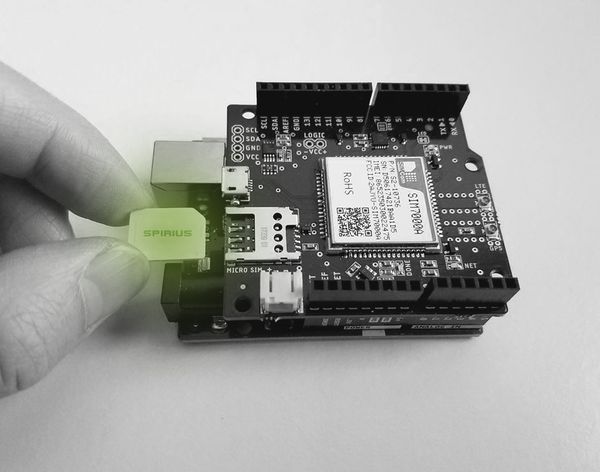Iot M2m Sim Card IoT M2M SIM Cards
Iot M2m Sim Card IoT M2M SIM Cards
Blog Article
Global Iot Sim Card IoT SIM cards
The landscape of manufacturing is evolving rapidly, driven primarily by technological developments. Among these developments, IoT connectivity solutions for manufacturing automation stand out as pivotal components reshaping how industries function. The Internet of Things (IoT) integrates digital and physical worlds, creating a network of interconnected gadgets that talk seamlessly. This interconnectedness permits producers to optimize their processes and improve productivity.
Real-time data is a cornerstone of modern manufacturing. Through IoT connectivity options, machines and sensors generate knowledge that provide insights into production processes. This quick access to info empowers producers to make knowledgeable selections quickly. For occasion, if a machine is underperforming, operators can identify the issue and implement corrective actions without delay, ultimately minimizing downtime and enhancing throughput.
Predictive maintenance is another vital good thing about IoT connectivity options. By repeatedly monitoring gear efficiency via numerous sensors, producers can anticipate failures before they occur. This proactive strategy drastically reduces maintenance costs and improves the lifecycle of machinery. Instead of adhering to a reactive maintenance strategy, organizations can optimize their maintenance schedules based mostly on precise machine situations.
Vodafone Iot Sim Card About IoT SIM Cards
IoT expertise also facilitates better supply chain management. With the combination of sensors all through the provision chain, producers acquire enhanced visibility into inventory ranges and material flows. This improved visibility allows businesses to optimize inventory management, making certain that they have the required supplies on hand without overstocking. Such effectivity translates to lowered prices and improved service levels, that are crucial for sustaining a competitive edge.
Automation and robotics are more and more reliant on IoT connectivity solutions. Smart factories integrate automated methods powered by IoT to streamline production processes. Robotics equipped with IoT capabilities can talk with one another and regulate their actions primarily based on real-time knowledge from the environment. This level of synchronization enables the implementation of adaptive manufacturing techniques that respond to fluctuations in demand rapidly and successfully. Iot Sim copyright.
Iot Sim copyright IoT SIM Card API global connectivity
Implementing IoT connectivity options requires a solid network infrastructure. Manufacturers should invest in dependable and secure communication networks able to dealing with the immense information generated by interconnected devices. 5G know-how is rising as an important enabler of IoT connectivity in manufacturing. Its fast pace and low latency help the real-time applications which would possibly be essential for data-driven decision-making.
Data analytics performs a significant function in harnessing the full potential of IoT connectivity options. With a wealth of information generated from connected devices, manufacturers should employ advanced analytics tools to extract actionable insights. Machine studying algorithms can determine patterns and anomalies in data that is in all probability not apparent to human analysts. This data-driven method enhances operational effectivity by driving continuous enchancment across manufacturing processes.
Cybersecurity is an important consideration as producers integrate IoT options into their operations. The connectivity that IoT brings increases the surface area for potential cyberattacks. Implementing strong security measures to safeguard critical manufacturing systems is paramount. This involves ensuring that every one gadgets are safe, knowledge is encrypted, and continuous monitoring for threats is in place.
Worker security is significantly improved through IoT connectivity options. Wearable gadgets equipped with sensors can monitor the health and security of staff in real time. These smart wearables can alert personnel to hazardous circumstances, making certain well timed intervention. Such measures not only shield staff but additionally contribute to overall productivity by minimizing the danger of accidents.
Sim Card Per Iot IoT SIMs Embedded Connectivity
The transition to smart manufacturing by way of IoT connectivity options also promotes sustainability. By optimizing processes, manufacturers can significantly reduce waste and energy consumption. IoT devices help track resource utilization, enabling companies to establish areas where effectivity can be enhanced. These environmentally friendly practices not solely profit the planet however can also end in price savings over time.
The impression of IoT connectivity solutions on manufacturing extends past the operational realm. They enable enhanced customer engagement by allowing manufacturers to deliver custom-made services. Through IoT-enabled units, producers can collect knowledge about buyer preferences, leading to the creation of tailor-made choices that better meet market calls for. This stage of engagement fosters buyer loyalty and strengthens model status.
In conclusion, IoT connectivity options for manufacturing automation characterize a transformative force in the business. By providing real-time insights, predicting equipment failures, improving supply chain administration, and enhancing worker safety, these solutions redefine operational efficiency. As producers proceed to combine IoT technologies, the benefits extend past conventional metrics of productiveness and price. Embracing these innovations sets the groundwork for a extra sustainable and responsive manufacturing Check This Out environment that is outfitted to fulfill the challenges of the future.
Iot Sim Card copyright IoT SIM Card Global M2M Connectivity

- Enhanced real-time monitoring by way of IoT sensors permits manufacturers to trace machinery performance and operational efficiency.
- Predictive maintenance is facilitated by IoT connectivity, lowering downtime and increasing gear lifespan via timely interventions.
- Seamless integration of IoT gadgets across manufacturing strains enhances data assortment, resulting in improved decision-making processes.
- Wireless technologies corresponding to LPWAN enable cost-effective communication over huge manufacturing facilities, minimizing installation complexity.
- Cloud-based IoT platforms provide scalable options for knowledge analytics and visualization, empowering producers to determine tendencies and optimize workflows.
- Enhanced asset tracking using IoT gadgets ensures higher inventory management and reduced losses as a end result of misplacement or theft.
- Industry-specific IoT protocols, like MQTT and CoAP, ensure efficient and safe information transmission tailor-made to manufacturing needs.
- Advanced cybersecurity measures are essential in IoT ecosystems to protect sensitive operational data from potential threats and breaches.
- Integration of IoT with machine learning algorithms allows for autonomous adjustments and enhancements in production processes based mostly on historical knowledge.
- Collaboration with IoT solution suppliers allows producers to customize connectivity strategies that address their distinctive operational challenges.
What are IoT connectivity solutions for manufacturing automation?
IoT connectivity solutions allow seamless communication between machines, sensors, and devices within a producing environment, facilitating knowledge exchange, monitoring, and control to boost operational effectivity and decision-making.
How do IoT connectivity solutions enhance manufacturing processes?
These solutions streamline workflows, cut back downtime, and optimize asset utilization by offering real-time data insights, enabling predictive maintenance, and enhancing supply chain visibility.
Iot Device With Sim Card IoT SIM network-independent IoT SIM
What types of IoT connectivity technologies are commonly utilized in manufacturing?

Common technologies include Wi-Fi, Zigbee, LoRaWAN, cellular (4G/5G), and Bluetooth. Each expertise presents distinctive benefits primarily based on vary, data transfer speed, and power consumption fitted to completely different manufacturing needs.
How safe are IoT connectivity solutions for manufacturing?
Robust security measures, including encryption, device authentication, and network segmentation, are important to protect manufacturing environments from cyber threats, ensuring information integrity and operational continuity.
copyright Iot Sim Card Fastest growing multi-network IoT SIM
Can IoT connectivity options be built-in with present manufacturing systems?
Yes, many IoT solutions are designed for interoperability, allowing integration with legacy techniques and gear. This enables producers to reinforce their capabilities with out replacing present infrastructure.
Iot Single Sim Card IoT SIM Plans and Pricing
What are the fee implications of implementing IoT connectivity solutions?
Initial setup prices might vary, but long-term savings are often realized by way of elevated efficiency, reduced waste, and improved maintenance methods (M2m Iot Sim Card). A detailed cost-benefit analysis might help decide the financial influence.
How can I choose the proper IoT connectivity solution for my manufacturing navigate to this site facility?

Evaluate components similar to scalability, reliability, ease of integration, and particular use case requirements. Consulting with trade experts and conducting pilot tasks can help in figuring out the most effective fit on your wants.
Iot Global Sim Card SIM Card IoT Data Plan
What are the challenges in adopting IoT connectivity options for manufacturing?
Challenges may embody cybersecurity concerns, interoperability points, and the necessity for staff coaching. Addressing these obstacles through strategic planning and stakeholder involvement can facilitate successful adoption.
How does data collected through IoT connectivity affect decision-making in manufacturing?
Real-time knowledge analytics allows producers to make informed choices shortly, optimizing operational processes, enhancing high quality control, and enabling proactive management of resources and potential points - Sim Card Iot.
Report this page